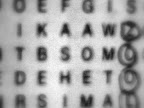Washington Post Refers to Israeli Settlements as Not Legal Internationally
In a stark change from past policy, the Washington Post referred to Israeli settlements in Tuesday's news pages as "legal under Israeli law but not internationally."
The development marks the first time in months -- perhaps many years -- that a top U.S. media outlet has labeled the settlements as in violation of international law. It's an appropriate move and the Post deserves praise.
The new language came in "Israeli Minister's Visit Aims To Calm Settlements Dispute" by state department reporter Glenn Kessler.
The Post, like many other U.S. news outlets, does not, in its own words, label the settlements as illegal under international law. It sometimes quotes individuals or cites groups who say that they are illegal. Often, the issue of illegality is not brought up at all -- except referring to outposts that are illegal under Israeli law, which confuses people into believing that some settlements are illegal and others are legal.
Other top U.S. outlets have similarly thrown their hands up on the issue. The New York Times has settled on the formulation that "much of the world" considers the settlements illegal under international law, language it first introduced in 2005. Some NYT articles note that the settlements are considered illegal by the E.U. and the U.N. (that's referring to security council resolutions). NPR also goes with the two-sides-to-the-story, i.e. "And what Israeli officials call expansion of a neighborhood of the united Jerusalem, the Palestinians call an illegal settlement. Har Homa is built on land Israel captured and annexed after the 1967 Mideast war, annexation the Palestinians and much of the international community view as illegal." The LATimes had mostly been the best, most recently saying that the settlements are "nearly universally seen as a violation of international law" and previously reporting the "near-universal contention that its established settlements violate international law." The AP, on the other hand, almost always avoids the issue of illegality altogether, instead simply noting, i.e., that "The U.S. considers Israel's 121 settlements to be obstacles to peace, since they are built on territory claimed by the Palestinians" or that Israel's annexation of East Juraselam was a "move not recognized by the international community."
This is one of those issues where there are multiple sides to the story, but trying to report the multiple sides is actually quite misleading -- because of the near-consensus on the issue. Sure, there are a few legal scholars out there who agree with Israel's contention that the settlements aren't illegal. There are also some scholars out there who say some other pretty crazy things. At some point, the media outlet must do its audience a service and call a spade a spade, and not mislead by implying some ambiguity.
Anyhow, the Post's language on Tuesday could be a conscious shift -- or perhaps just a slip. I'm awfully curious.
Here's the full paragraph:
There are more than 120 settlements in the occupied West Bank that are legal under Israeli law but not internationally. The Fourth Geneva Convention, which Israel ratified in 1951, forbids an occupying power from transferring "parts of its own civilian population into the territory it occupies," but Israel disputes that this provision applies to settlements. Israel seized the West Bank and other territories in the 1967 Arab-Israeli war.


2 Comments:
I liked this, Ben. Thanks. Good info to know.
And the AP, really...
Really?
Post a Comment
<< Home